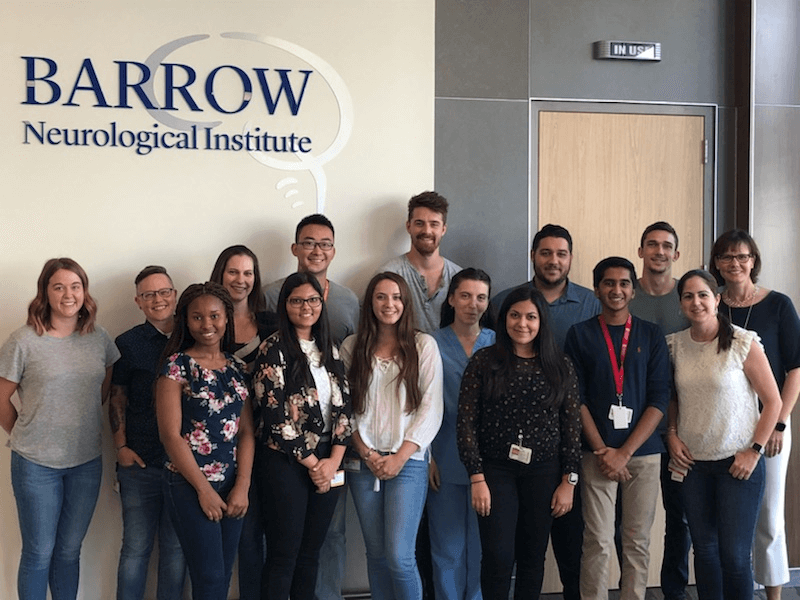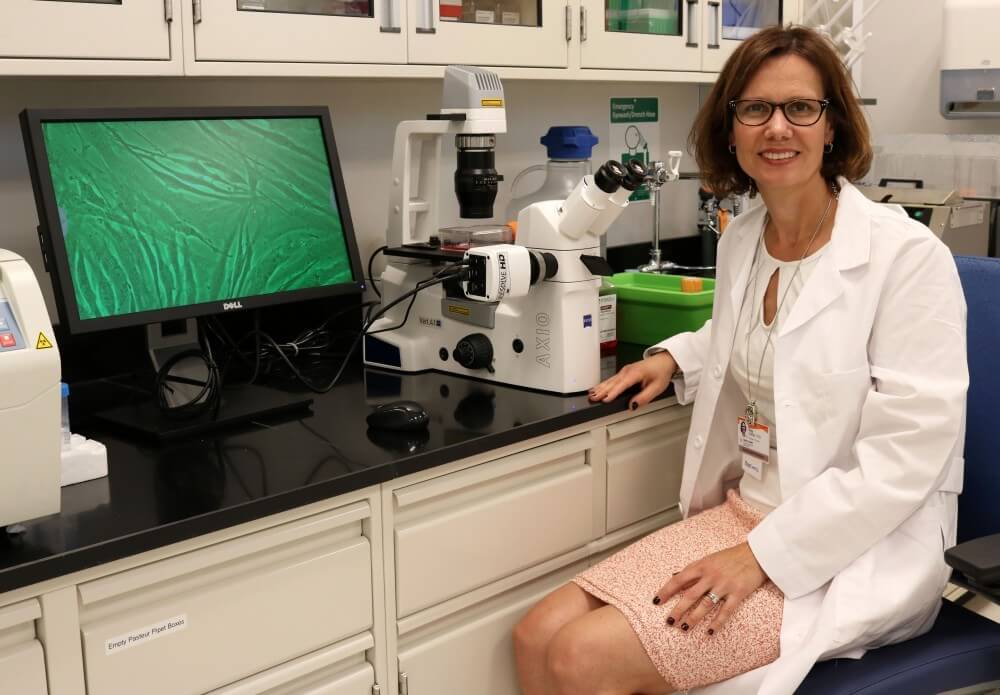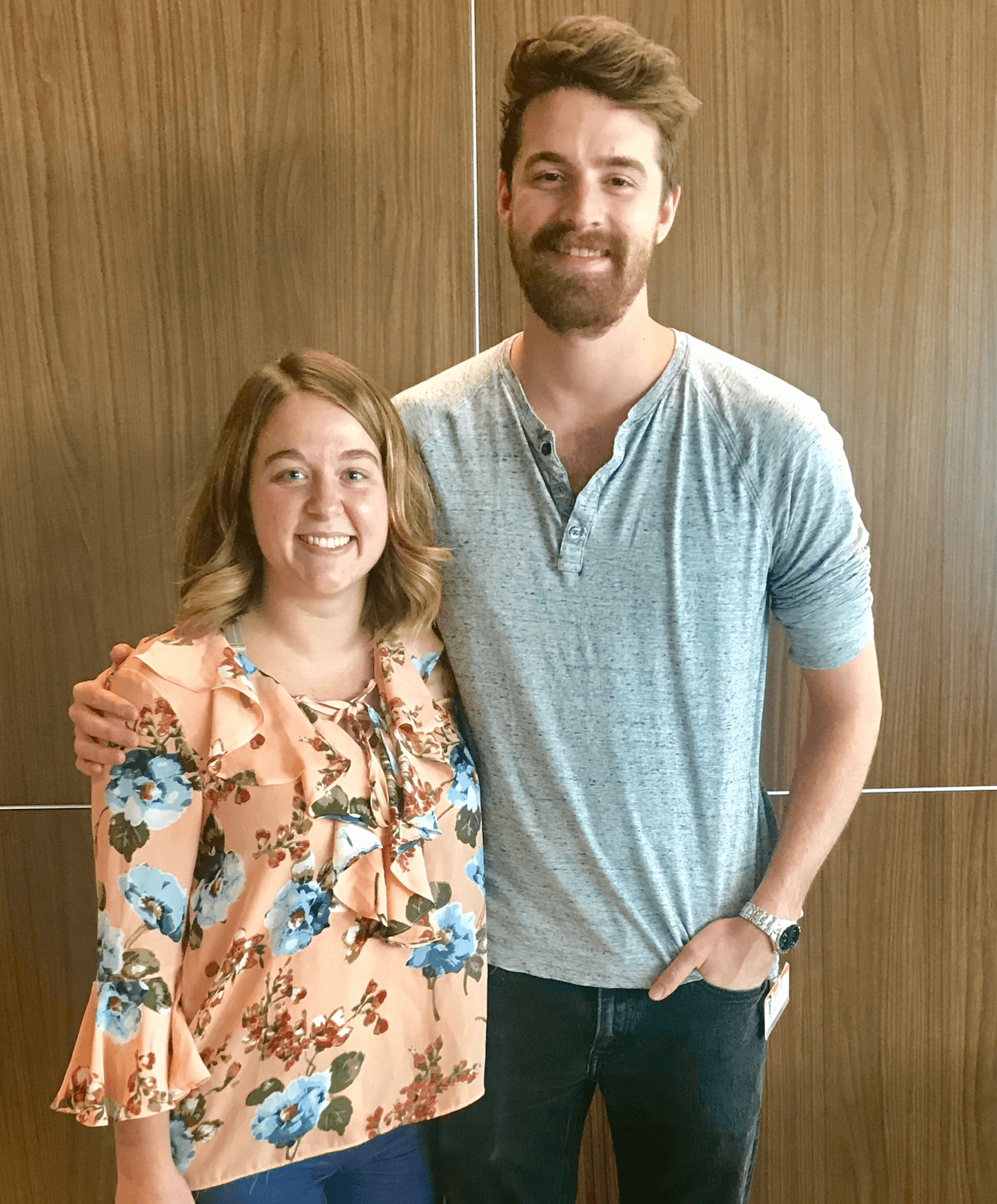
Summer Internship Program Provides Undergraduates with Real Lab Experience
She balances her rigorous academic schedule with a job in student activities and a position on the golf team. The National Association of Intercollegiate Athletics named her a Daktronics Scholar-Athlete, which it only awards to upperclassmen with a grade-point average of at least 3.5 on a 4.0 scale.

But while interning in Dr. Rita Sattler’s neurodegeneration laboratory at Barrow Neurological Institute over the summer, she encountered a setback. There was a problem with the antibodies she had used in her first round of cell staining, halting her work until the lab received new antibodies.
“It was eye-opening and also helpful for me to overcome that failure and learn from it,” she said. “I learned a lot about the way research happens and how to troubleshoot. I think it was a very realistic experience.”
Smith said the internship was very different from her college courses, where she would follow a set protocol to achieve results already known to her professor. The internship allowed her to tap into her critical-thinking and problem-solving skills while also making her more excited about research.
“It’s less about following protocol and more about discovering things that you don’t already know,” she said.
Smith heard about the internship from Stephen Moore, a graduate student in Dr. Sattler’s lab. A former Graceland University student, Moore wanted to work with an undergraduate from his alma mater.
The Barrow undergraduate internship program is a full-time, paid, 10- to 12-week program available to students across the United States and abroad. Internships are available in basic science and disease-relevant neuroscience areas, including brain tumors, Alzheimer’s disease and other dementias, amyotrophic lateral sclerosis (ALS), stroke, trauma, neuro-inflammation, and brain imaging.
“These internships present a very unique opportunity to the young and upcoming generation of neuroscientists to participate in cutting-edge disease and patient-relevant translational research,” Dr. Sattler said.
She and her team have a prestigious R01 grant from the National Institutes of Health, as well as funding from the ALS Association and the Muscular Dystrophy Association, to study what causes the death of nerve cells in degenerative diseases like ALS.

Since Graceland doesn’t have a neuroscience program, Smith didn’t know a lot about neurodegenerative diseases and was eager to learn. She worked closely with Moore, who focuses on the role of ADAR2 and GluA2 editing in ALS associated with the C9orf72 mutation.
Smith performed immunofluorescent cell staining, a technique that allows scientists to better visualize cells under a microscope. She also learned about confocal microscopy and image analysis.
Smith also fostered valuable relationships while working in the laboratory, which she described as having a welcoming and supportive atmosphere.
Adamant in her early college years about only pursuing the clinical side of medicine, Smith was surprised to find that she also enjoys research and said she would be happy in either role.
“You don’t have to do a research internship only if you’re positive you want to do research,” she said. “It’s an opportunity to decide if you like research or not.”
She encourages other students to be open to different opportunities, build supportive relationships, and welcome obstacles.
“If you encounter a failure or setback in research, don’t be discouraged and don’t give up on it,” she said. “You’ll learn more from it than if you never had anything go wrong in the first place.”
The deadline to apply for summer 2019 is 5:00 P.M. MST on Jan. 31. To learn more about the program and to apply online, click here.
